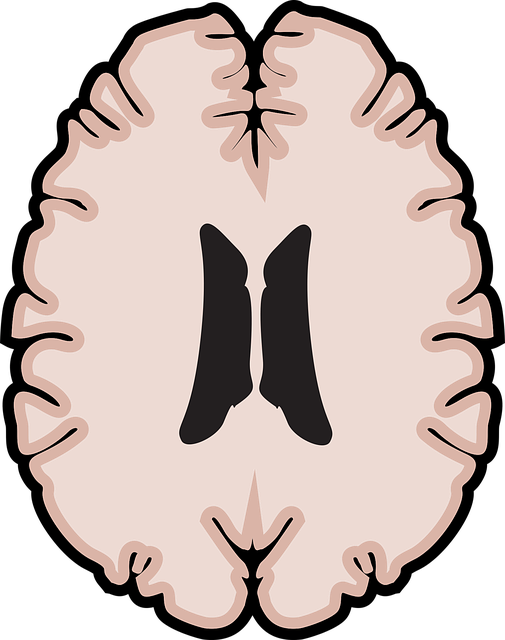Mental health policies, focusing on funding, accessibility, and community integration, are vital for treating conditions like PTSD. Wheat Ridge Post-Traumatic Stress Disorder (PTSD) Therapy serves as a successful case study, employing evidence-based strategies to improve patient outcomes and reduce stigma. Advocacy plays a key role in shaping these policies through awareness campaigns, outreach, and lobbying for policy reforms, ultimately leading to better mental health care systems aligned with the needs of individuals with PTSD.
Mental health policy plays a pivotal role in shaping access to vital treatment services, especially for underserved communities. This article delves into this critical aspect through three key sections. We first explore the profound impact of mental health policy on treatment accessibility, using Wheat Ridge Post-Traumatic Stress Disorder Therapy (WRPTDT) as a compelling case study to illustrate real-world effects. Subsequently, we analyze successful advocacy strategies for policy change. By examining these aspects, the article offers insights into enhancing mental healthcare availability and quality.
- Understanding Mental Health Policy and Its Impact on Treatment Access
- Analyzing Wheat Ridge Post-Traumatic Stress Disorder Therapy: A Case Study
- Advocacy Strategies for Effective Mental Health Policy Change
Understanding Mental Health Policy and Its Impact on Treatment Access

Mental health policy plays a pivotal role in shaping access to treatment and support for individuals grappling with conditions like Wheat Ridge Post-Traumatic Stress Disorder (PTSD) Therapy. Effective policies advocate for increased funding, improved service availability, and community integration of mental health care services. By addressing barriers such as cost, accessibility, and stigma, these policies enable more people to receive the necessary care.
Public Awareness Campaigns Development, Self-Awareness Exercises, and Risk Assessment for Mental Health Professionals are all integral components within this framework. Public awareness campaigns help destigmatize mental health issues, encouraging open conversations and fostering an environment where individuals feel comfortable seeking assistance. Self-awareness exercises empower people to recognize their own mental health needs and take proactive steps towards well-being. Meanwhile, risk assessment tools assist professionals in identifying potential risks among clients, enabling them to provide timely interventions tailored to individual needs.
Analyzing Wheat Ridge Post-Traumatic Stress Disorder Therapy: A Case Study

Wheat Ridge Post-Traumatic Stress Disorder (PTSD) Therapy serves as a compelling case study for understanding the intricacies of mental health policy and advocacy. This therapeutic approach, tailored to address the unique challenges faced by individuals struggling with PTSD, offers valuable insights into effective treatment modalities. By examining its methodologies, outcomes, and impact on patients’ lives, we gain crucial knowledge about what works in managing this often-complex condition.
The program’s success lies not only in its specialized interventions but also in fostering mental health awareness and coping skills development. It leverages evidence-based practices to challenge the stigma surrounding PTSD and depression prevention, ultimately advocating for comprehensive support systems. This case study underscores the importance of policy interventions that prioritize access to quality therapy, recognizing it as a game-changer in navigating the intricate landscape of mental wellness.
Advocacy Strategies for Effective Mental Health Policy Change

Advocacy plays a pivotal role in driving policy changes that significantly impact mental health services and support systems. When it comes to effective advocacy for mental health policies, strategic approaches are key. One powerful strategy is raising awareness through education and outreach programs. This involves engaging communities, healthcare providers, and policymakers by sharing evidence-based information about various mental health concerns, such as Post-Traumatic Stress Disorder (PTSD). For instance, initiatives like Wheat Ridge’s PTSD therapy programs can showcase the success of targeted interventions, influencing policy decisions to allocate more resources for similar services.
Additionally, advocacy groups can effectively lobby for policy reforms by presenting well-researched proposals that address identified gaps in mental health care. This includes pushing for better crisis intervention guidance, integrating trauma support services into mainstream healthcare, and organizing Stress Management Workshops on a larger scale. Such efforts ensure that policies reflect the needs of individuals struggling with mental health issues, ultimately leading to more comprehensive and effective support systems.
Mental health policy plays a pivotal role in shaping access to treatment, as evidenced by the case study of Wheat Ridge Post-Traumatic Stress Disorder Therapy. By analyzing existing policies and advocating for change, we can create a more inclusive and effective mental healthcare system. The strategies outlined in this article provide a roadmap for driving policy shifts, ensuring that everyone, regardless of their background or location, has equal opportunities to access life-saving treatments like Wheat Ridge PTSD therapy. Through continuous evaluation and collective action, we can foster positive change and improve the overall well-being of our communities.













